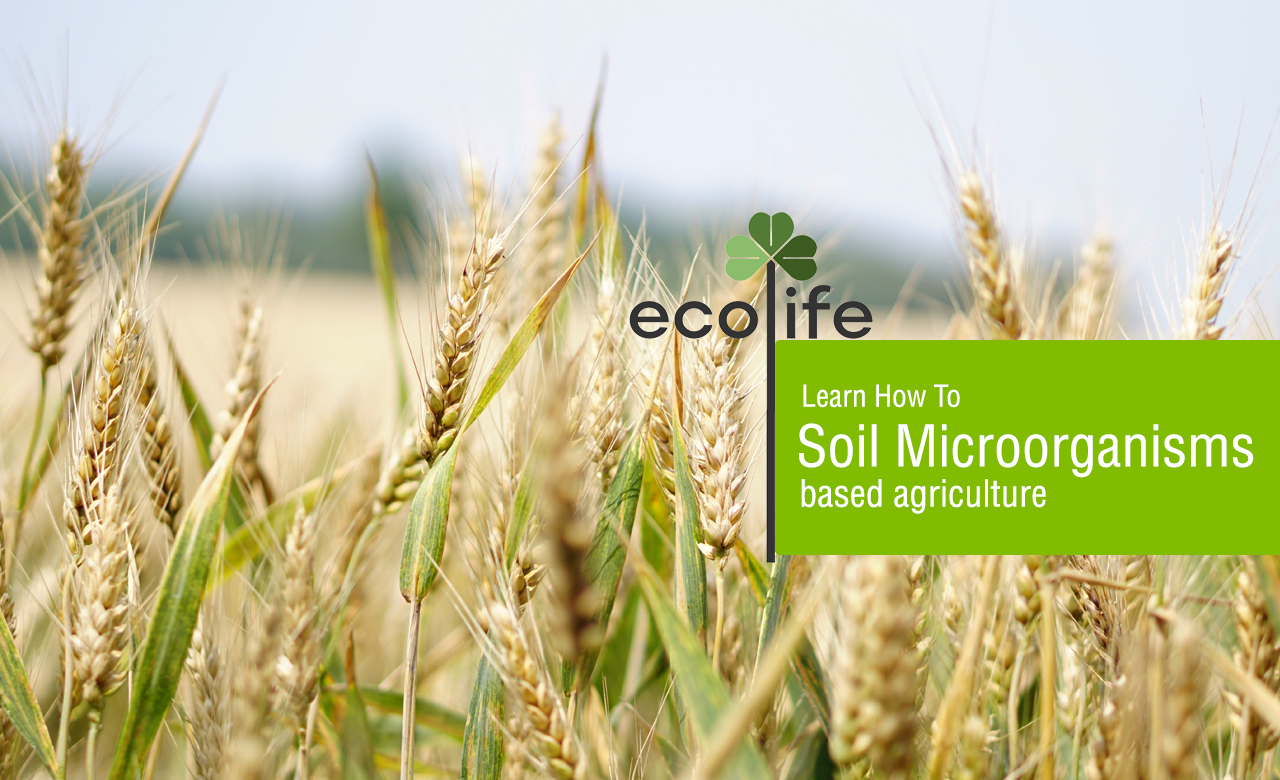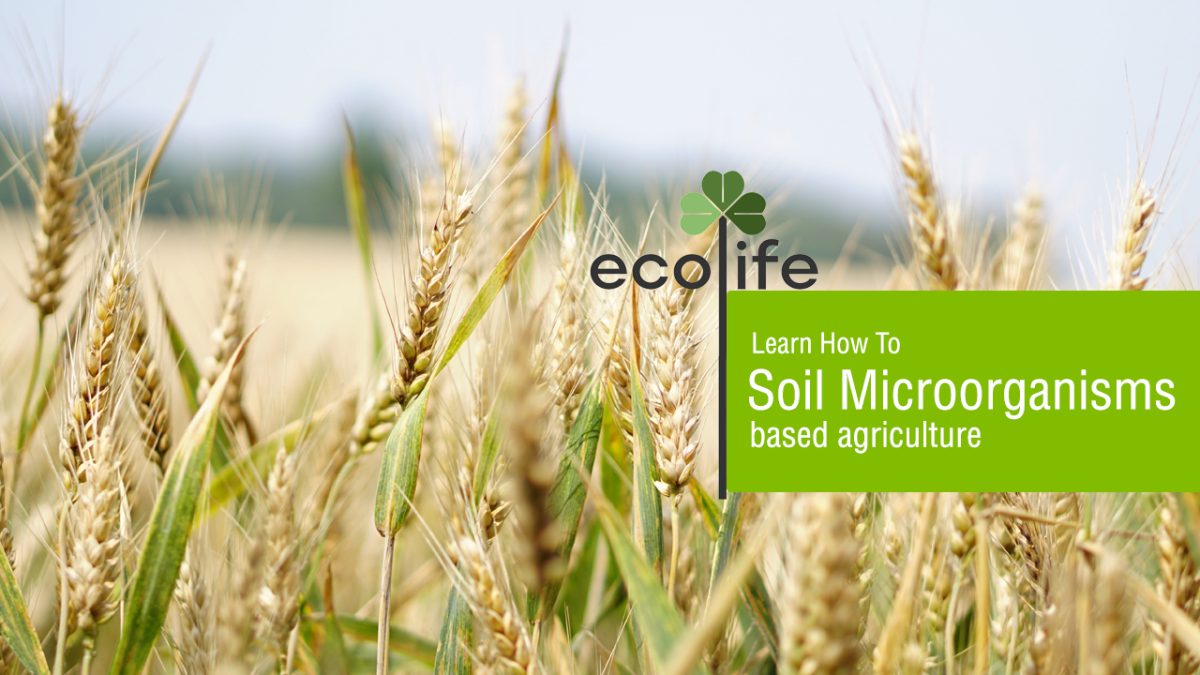
Soil Microorganisms based agriculture
Before the advent of chemical fertilisers the organic manure was added to soil to boost agriculture productivity. What does the organic manure do? The organic manure decomposes to give liquid carbon as food to the soil microorganisms. The soil microorganisms grow and do a process of bio mining.
What is bio mining? Plants need about 13 mineral nutrients from the soil in a water dispersible ionic form. Most of the minerals in the soil are in a non-soluble mineral form. When soil microorganisms sit on these minerals they break the chemical bond between ions and solubilise the ions into an ionic form and deliver to the plants.
For example: If we have Calcium phosphate as a mineral, the soil microorganisms sitting on this mineral breaks the chemical bond between calcium and phosphate and deliver both the nutrients to the plants in an ionic form. This is one example of bio mining.
Soil microorganisms also absorb gaseous nitrogen from the air and convert into organic nitrogen and deliver it to the plants through Archaea and mycorrhizal fungi. In a similar fashion all essential mineral nutrients iron, zinc, boron, calcium, magnesium etc. etc. are delivered to the plants by soil microorganisms through bio mining.
When we do soil testing we only test for soluble nutrients in the soil. The insoluble nutrients are thus left out. All minerals are present in all types of soils. This has been ensured by the creator. By ensuring that the microorganisms are healthy and growing well, you do not need to add any chemical fertilisers to the soil. These microorganisms are akin to trillions of factories in the soil supplying nutrients to the plants.
Everyone is aware that adding chemical fertilisers and weedicides to soil kills the soil microorganisms and degrade the soil. Food grown using chemical fertilisers lack essential mineral nutrients making people dependent on them unhealthy. All modern day diseases like diabetes, heart, cancer, asthma etc. can be traced to eating food not having all nutrients.
Converting an agriculture land from chemical fertilisers to an organic one can be very painful since the yield drops significantly. The poisons in the soil have to be driven out before the liquid carbon pathway can be established and enable the microorganisms to come back to deliver nutrients to the plants.
We at Eco Life have innovated, developed, patented a Nanonutrient called “Nano Foliar Spray Super” that can help convert degraded chemical fertiliser polluted land back to Organic cultivation without problems of yield drop or expensive costs. The cost of production of crops will be low.
“Nano Foliar Spray Super” (NFS) is a nanonutrient with 12 essential nutrients loaded on nano silica. When sprayed on to plants it is absorbed through the stomata openings of the leaves and is lodged onto the chlorophyll. This package of nutrients boosts photosynthesis of all plants. The plants absorb more Carbon dioxide from the air and make a liquid carbon pathway and send it through the roots into the soil as oozuates. This liquid carbon is the food for soil microorganisms in the root zone. The microorganisms grow well and do bio mining and deliver nutrients in the ionic form to the plants.
How do the soil microorganisms know what nutrients to deliver to the plants?
The plants by sending liquid carbon as food to the microorganisms enter into a symbiotic relationship with them. For every nutrient required they send a particular amino acid that tells the microorganisms to deliver a particular nutrient and the quantity. The microorganisms hunt for the nutrient and comply with the order from the plant. No surplus or shortage!
If the soil is highly degraded it can be revived by introducing beneficial soil microorganisms like Trichoderma and Pseudomonas through cow dung by culturing and by adding soil bacteria. However it will work only if Nano Foliar Spray Super is used to boost the photosynthesis and promote the liquid carbon pathway.
More than 50,000 farmers have adopted NFS system in Hassan, Madikeri, and in Tamil Nadu. We can also make a direct presentation if invited.
For more information about Soil Microorganisms based agriculture contact us.


